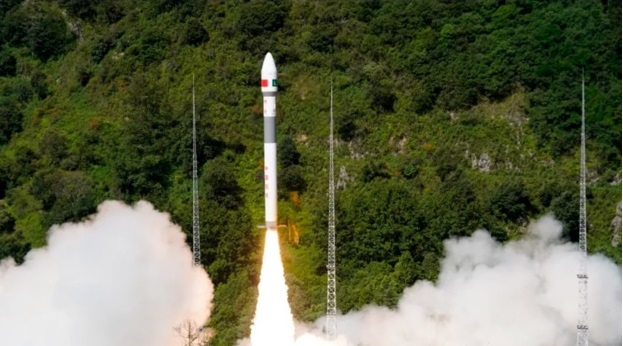FPI / October 3, 2025
By Richard Fisher
Since the 1970s China has assisted Pakistan’s nuclear weapon and nuclear missile buildup that could soon include intercontinental ballistic missiles (ICBM) — according to the former Biden Administration that sanctioned involved Pakistani companies in December 2024.

A Pakistani ICBM capability makes little sense in relation to its 70+ year conflict with India, but makes clear sense in regard to the Sept. 17 Kingdom of Saudi Arabia and Pakistan Strategic Mutual Defense Agreement (SMDA) that commits Pakistan to extend its nuclear protection to Saudi Arabia, with the requirement that it must also deter global nuclear threats, including from the United States.
But in order for Pakistan’s future ICBMs to be able to deter global nuclear threats, including from the United States, Islamabad requires a robust satellite network to gather realtime targeting intelligence and to guide its ICBMs.
This requirement will be fulfilled, again, by China, according to a Sept. 5 report on the Chinese web portal YiCai, noting that on Sept. 4 the Chinese Henan Province-based Piesat Information Technology Company had signed a US$406.4 million satellite deal with Pakistan, saying:
“Under the agreement, Piesat will assist Pakistan in constructing an integrated satellite system for global real-time communication and remote sensing. The first phase includes the launch and operation of 20 satellites, the construction of a satellite manufacturing facility, and the development of supporting software. Piesat will also provide technical support to help Pakistan develop independent capabilities in satellite manufacturing, operations, and applications.”
Piesat was founded in 2008 and the YiCai report notes the company “has struggled in recent years due to a weak macroeconomic environment and a decrease in domestic orders,” even though its is said to be developing China’s largest 114 satellite commercial remote sensing satellite constellation called Nuwa.

But now a deal with Pakistan could revive Piesat’s financial health while Piesat’s Nuwa satellite network as well as any satellites sold to Pakistan, will also benefit China’s People’s Liberation Army (PLA), which ultimately controls all Chinese space programs.
Piesat offers an initial all-weather Synthetic Aperture Radar (SAR) satellite constellation of four satellites — one signal emitter and three receivers — capable of a 0.5-meter resolution and an observation swath that is 80km wide.
This is more than enough to follow strategic targets, and Piesat is increasing its offering to include either communication satellites, or communication systems embedded on the SAR satellites.
